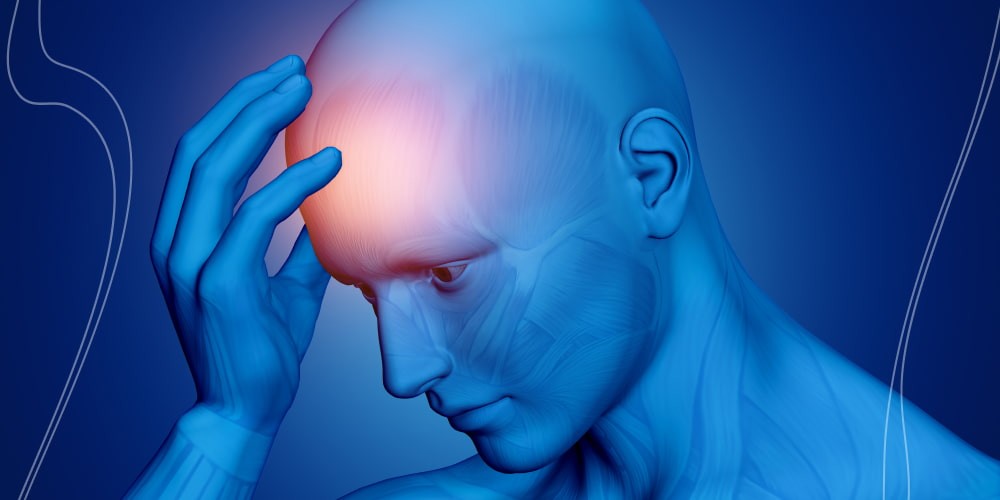To understand how to treat it, let’s first figure out what Alzheimer’s disease is and how it could be treated. It’s one of the most common and serious senile illnesses. The main thing that makes this illness so complicated to treat is that it’s a complex disease that can’t be treated with one magic pill.
Modern medicine focuses on saving cognitive functions to deal with different behavior disorders, and the main thing is to reduce the speed of illness progress.
The primary thing when treating Alzheimer’s disease is to provide comfort and rest to the patient and be patient with them. If coupled with drugs, this treatment will be effective. Also, as we talk about the effectiveness, most drugs are highly effective at the beginning or middle stages. That is why it is very important to detect this illness as early as possible, as it raises chances to minimize damage and reduce the speed of illness progress.
Everything that doctors can do is prolong a patient’s independent living and reduce the speed of symptoms developing. It’s sad, but indeed it’s true that there are no drugs or methods to stop the illness from progressing.
Main Alzheimer’s Symptoms
The main symptoms of the disease could be various. As we mentioned earlier, this illness damages the brain very slowly but is unstoppable; it can last for years. Another important aspect of this disease is that it can be present without any vivid symptoms. So the brain could be already damaged, but there will be no signs of that. In most cases, the patient could see or feel any changes at sixty if it’s a late-onset variant or between thirty and sixty if it’s an early-onset variant; there are two groups of patients.
The most common symptom of this illness is memory disorders that progress over time. The patient can forget even some basic things like own name or home address, but it’s more typical to happen in bad cases of the disease. That’s why these patients need special care. Patients with Alzheimer’s dementia also have various cognitive disorders, like problems with speech or vision. They also could have spatial orientation impairments and other cognitive disorders and should be treated as early as possible. All these signs could be a signal of the beginning of the illness. As for stages of the disease, doctors highlighted a few groups that vary in their severity. There are preclinical, mild or early stage, moderate, and severe.
Mild Stage Symptoms and Their Treatment
At this stage, the patient can have no critical problems, but symptoms of the disease are already present, and the patient can see or feel their development. Of course, family and friends will also see some changes and can recommend calling the doctor. The patient can have problems with memory and speed of thinking, these symptoms influence everyday life, and they will progress over time. Other symptoms are:
- Losing memory. The patient can forget some small things or daily tasks.
- Becoming passive. The patient doesn’t get the initiative and doesn’t like to make any decisions.
- Speech and emotional changes. The patient could have an unstable mood condition and become aggressive for no objective reasons and other behavior changes. As for speech, it could be slow and hard to understand.
This stage of Alzheimer’s is treated with cholinesterase inhibitors, which stop acetylcholine ruining, and have a positive influence on the behavior of the patient. Acetylcholine is important in the brain’s metabolism and influences memory and thinking processes. Also, as we mentioned earlier, treating is aimed to slow down the development of the disease, and using these drugs can help with that.
Moderate Stage Symptoms and Their Treatment
At this stage, the patient is not more fully independent and needs special care. Symptoms of this stage are:
- Hard memory loss. The patient can forget names, phone numbers, daily tasks, or even own home address. It could be dangerous for the patient because they can easily get lost while going out somewhere.
- Learning problems. The patient with Alzheimer’s dementia is not able to learn something new, and it’s almost impossible for them to remember any new information.
- Language disorders. The patient could have trouble working with any information, like reading or writing something; also, it could be hard to calculate numbers and count in mind.
- Logical thinking disorders. The patient is hard to make any logical conclusions and decisions. Also, it could be hard for them to organize themself.
- Attention and recognizing difficulties. The patient cannot pay attention to one thing or task for a long time, which also causes another problem with doing tasks with more than one step. It means that a patient cannot cook something to eat or even take a shower without help. Also, it becomes hard for the patient to recognize their relatives, partner, friends, children.
- Mental disorders. The patient can have paranoia and be rude to people around them. They also can swear without any reason and shout at people. The patient can become aggressive fast, and it could be dangerous because they can hurt somebody.
This stage of Alzheimer’s is treated like a previous one, but with raised doses of drugs, special medical and home care, and regular doctor supervision. In severe cases, other drugs could also be prescribed.
Severe Stage Symptoms and Their Treatment
At this stage, the patient has critical problems communicating with people because symptoms of the disease are vivid. The patient can no longer be independent; they require special care, and without it, they would not survive. Patients at this stage usually cannot move and lay on the bed all the time. Symptoms of this stage are:
- Communicating disorders. The patient couldn’t communicate with people anymore.
- Losing weight. The patient loses weight pretty fast because they are unable to eat normally.
- Bedsores. Bedsores develop if the patient doesn’t get a special massage and could cause different skin illnesses.












Please, leave your review
Write a comment: